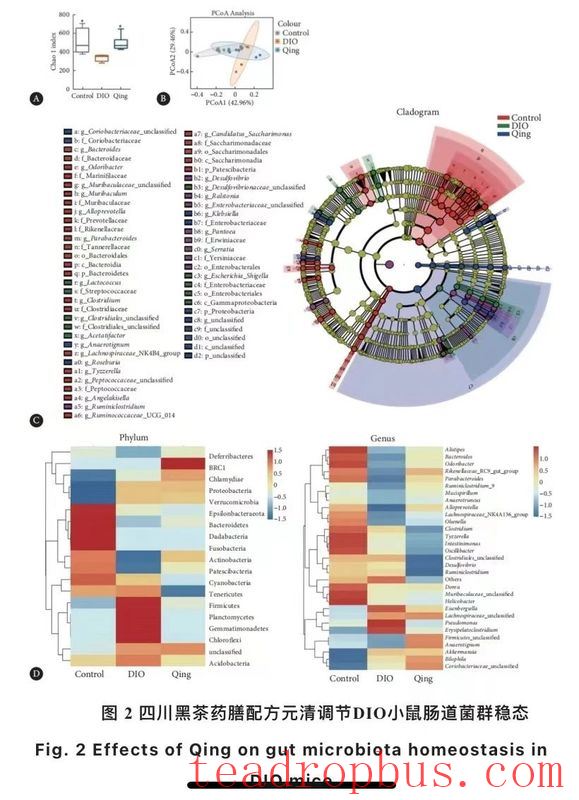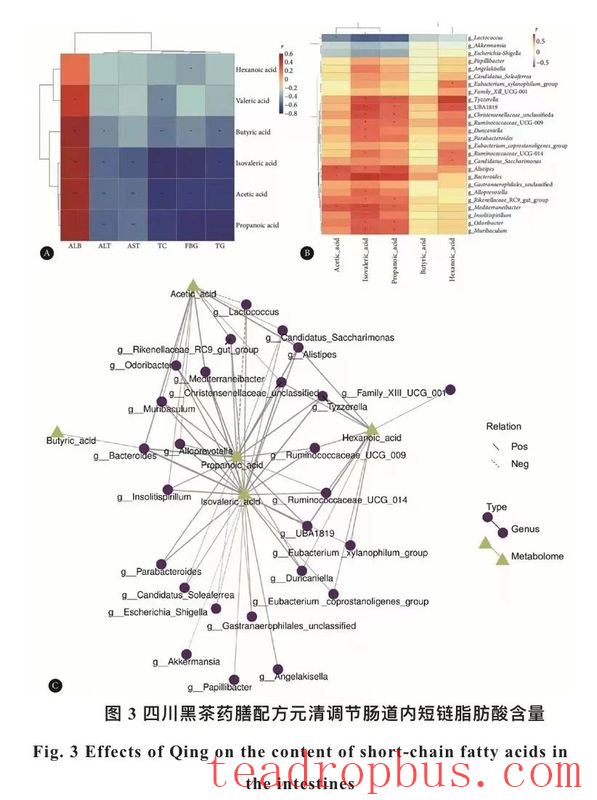
The incidence of obesity is increasing globally each year, becoming a worldwide health issue. Obesity significantly increases the risk of metabolic diseases and cardiovascular diseases and is also an independent risk factor for chronic kidney disease (CKD). Long-term high-fat diet (HFD) can trigger insulin resistance, dyslipidemia, and other issues, increasing the burden on the kidneys.
In recent years, the concept of “food as medicine” has gradually shown advantages in treating metabolic diseases and cardiovascular diseases in the field of comprehensive health. Among them, dark Tea has received increasing attention for its effects in weight loss and lipid reduction. Recently, Professor Fu Ping's team from the Department of Nephrology at Huaxi Hospital, Sichuan University, found that the Sichuan dark tea medicinal dietary formula, Yuan Qing, has the ability to regulate renal lipid metabolism, reduce liver and kidney damage caused by a high-fat diet, and decrease visceral lipid deposition.

Professor Fu Ping's team demonstrated that excessive long-term fat intake leads to lipid accumulation in the kidneys. Lipid metabolic disorders can induce inflammation and oxidative stress, causing kidney damage and dysfunction, and the gut microbiota and its metabolites may play a significant role in obesity-related kidney diseases. Sichuan dark tea is produced in Ya'an, Sichuan, China, and has been shown to prevent cardiovascular diseases, aid in weight loss, alleviate metabolic syndrome, and regulate the gut microbiota. However, there are relatively few studies on Sichuan dark tea both domestically and internationally. In this study by Professor Fu Ping's team, it was confirmed that Sichuan dark tea can improve obesity by regulating the gut flora in mice.

Currently, there is a lack of treatment drugs for obesity-related kidney damage in clinical practice. Statins, as first-line medication for hypercholesterolemia, are used to treat dyslipidemia in CKD patients, but they come with side effects such as myalgia and liver function impairment. Therefore, people tend to look for other methods to improve lipid metabolism from botanical medicines. Compared to traditional Chinese medicines and chemical drugs, “food as medicine” herbal medicines are gradually showing potential advantages due to their higher patient compliance, fewer side effects, comprehensive intervention capabilities, and flexible application. Professor Fu Ping's team studied a medicinal dietary formula made from Sichuan dark tea combined with multiple Herbs (the formula named Yuan Qing), feeding the water extract of this formula to diet-induced obesity (DIO) mice to investigate its functions and mechanisms in regulating the gut microbiota and improving renal lipid deposition. The Sichuan dark tea formula (Yuan Qing) used in the study was composed of Ya'an Tibetan tea combined with over ten types of herbs, including Cassia seeds and mulberry leaves (Sichuan Korexen Pharmaceutical Technology, Food Production License No. SC10351012401028), all meeting the requirements of the Pharmacopoeia of the People's Republic of China. After accurately weighing the corresponding herbs, ten times the total herb mass in pure water was added, and the mixture was boiled three times, each time for 3 hours. The filtrates were combined and dried and ground under −0.085 MPa and 65°C, passing through an 80-mesh sieve to obtain approximately 250 grams of dry powder. The daily water consumption of each mouse in the treatment group (specific grouping details see section 1.3) was measured, and a certain amount of Yuan Qing was added to their drinking water so that the oral dose of Yuan Qing reached 400 mg/(kg·d).
The study showed that Yuan Qing increased the levels of short-chain fatty acids (SCFAs) in the gut of DIO mice, particularly propionic acid and isovaleric acid. Simultaneously, it regulated energy metabolism by promoting AMPK phosphorylation in vivo, improving lipid metabolic disorders. The research from the Department of Nephrology at Huaxi Hospital confirmed that the Sichuan dark tea formula can alleviate liver and kidney damage caused by a high-fat diet, reduce visceral lipid deposition, and its renal protective effect mainly occurs through regulating the diversity and composition of the gut microbiota, increasing SCFA content. This study revealed the potential mechanism by which the Sichuan dark tea formula improves renal lipid metabolism for the first time, providing a basis for the treatment of obesity-related nephropathy.
If there are any copyright issues, please contact us to remove the content.